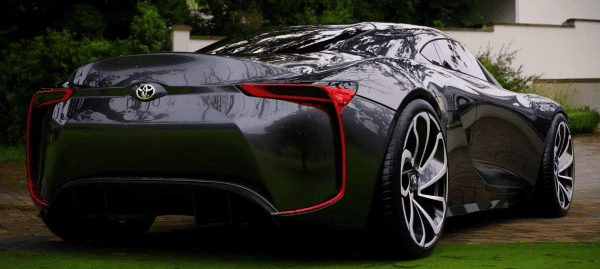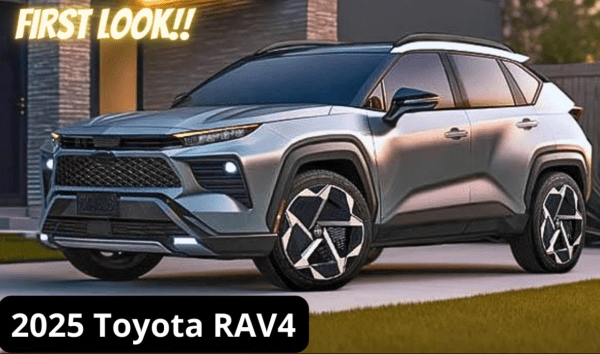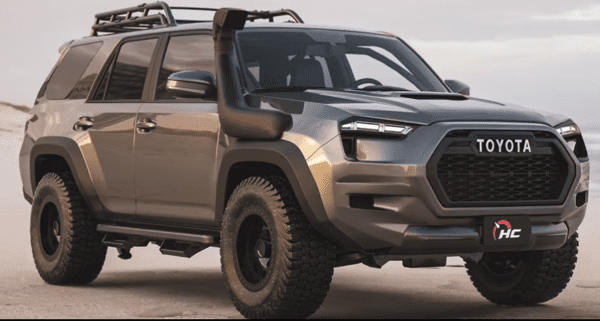Toyota 2025

Toyota, one of the world’s leading automotive innovators, is making major strides in new technologies for 2025, focusing heavily on electrification, sustainability, automation, and connected services. As we approach the middle of the decade, Toyota’s vision for the future is being realized through advanced battery systems, cutting-edge hydrogen technology, autonomous driving platforms, and software-defined vehicle architecture. This article explores the most significant developments Toyota is introducing in 2025, providing a comprehensive overview in more than 600 words.
⚡ 1. Electrification: Beyond Zero Vision – Toyota 2025
Toyota’s “Beyond Zero” initiative is a central pillar of its 2025 strategy, emphasizing a diverse approach to achieving carbon neutrality. Rather than betting solely on battery electric vehicles (BEVs), Toyota is developing multiple technologies including:
a. Next-Gen Solid-State Batteries
- Launch Timeline: Prototype production expected by 2025.
- Key Features:
- Up to 1,000 km (620 miles) of range.
- 10-minute rapid charging.
- High energy density, long cycle life, and improved safety.
- Applications: High-performance Lexus and Toyota BEVs.
Toyota has invested in proprietary solid electrolyte materials and manufacturing processes that enable faster, safer, and more compact battery designs.
b. bZ (Beyond Zero) Lineup Expansion
Toyota plans to expand its “bZ” (Beyond Zero) electric lineup with:
- bZ Compact SUV
- bZ3 (for Asian markets)
- bZ4X updates: Improved software, better range, and enhanced charging times.
Each model includes updates to Toyota’s e-TNGA platform, a modular battery-electric chassis shared across global markets.
🔋 2. Hydrogen & Fuel Cell Innovations – Toyota 2025
Toyota remains a global leader in hydrogen technology, thanks to its early development of the Mirai fuel cell vehicle.
a. Commercial Fuel Cell Applications
- Toyota is scaling up hydrogen-powered commercial vehicles, including:
- Fuel-cell trucks (with Hino and Kenworth)
- Hydrogen-powered buses
- Industrial forklifts and stationary power generators
b. Next-Gen Hydrogen Combustion Engine
In addition to fuel cells, Toyota is experimenting with hydrogen combustion engines—where hydrogen is burned like gasoline but emits only water vapor. Prototypes have already been tested in motorsports under the “GR” division.
🧠 3. Software-Defined Vehicles & AI – Toyota 2025
Toyota is fully embracing the concept of software-defined vehicles (SDVs). In 2025, Toyota vehicles are expected to come with integrated platforms that offer over-the-air (OTA) updates, cloud-based diagnostics, and predictive maintenance.
a. Arene OS – Toyota’s Software Platform
- Developed by Woven by Toyota (formerly Toyota Research Institute – Advanced Development).
- Enables real-time control of vehicle functions.
- Allows 3rd-party developers to build apps and services for cars, similar to smartphones.
- Supports enhanced human-machine interfaces (HMI) and infotainment systems.
b. AI Integration
- Toyota is using artificial intelligence for:
- Driver behavior analysis
- Advanced safety features (predictive collision avoidance)
- Personalized driving environments (climate, music, driving modes)
- Smart routing and navigation using live traffic and weather feeds

🧍♂️ 4. Autonomous & Assisted Driving
Toyota is progressing steadily in autonomous technologies, emphasizing “Mobility for All” rather than full self-driving.
a. Teammate Advanced Driver Assist
- Available in vehicles like the Lexus LS and upcoming Toyota Crown.
- Features include:
- Highway hands-free driving
- Lane centering
- Automatic lane changes
- Smart adaptive cruise control
b. Woven City & Mobility as a Service (MaaS)
Toyota is building Woven City, a smart city prototype at the base of Mount Fuji.
- Fully autonomous transport pods
- Integrated robotics and smart infrastructure
- Testing ground for AI-powered personal mobility, healthcare, and public services
🔌 5. Sustainability and Circular Economy – Toyota 2025
Toyota’s 2025 vision includes significant milestones for carbon neutrality and environmental stewardship.
a. Carbon-Neutral Factories
- Zero CO₂ emissions from global plants by 2035 (with significant progress by 2025)
- Renewable energy use and hydrogen-powered plant operations
b. Recycling and Reuse
- Closed-loop battery recycling
- Increased use of sustainable and recycled interior materials
- Partnerships with local communities for material reuse
📡 6. Connectivity & Digital Ecosystem – Toyota 2025
Toyota is developing a full suite of connected services:
- Toyota Connected Services:
- Real-time vehicle tracking
- Emergency assistance and roadside support
- Smartphone integration for vehicle access and diagnostics
- Smart Infrastructure Sync:
- Vehicles can communicate with smart roads, charging networks, and traffic systems.
- Enhances safety, traffic flow, and energy efficiency.
🚗 Conclusion
In 2025, Toyota is not just building cars—it’s creating an entire mobility ecosystem. With next-generation battery technology, cutting-edge hydrogen applications, artificial intelligence, autonomous driving, and a push toward sustainability, Toyota is setting itself apart as a true innovator in the automotive industry.
Toyota’s strategy is multifaceted—not just focusing on electric vehicles, but also embracing hydrogen, hybrid, and advanced software. This ensures that Toyota remains adaptable and globally relevant in diverse markets with different needs and infrastructures.

Toyota 2025 helpful and reliable links
Here are some helpful and reliable links to explore Toyota’s latest technologies, including their 2025 innovations in electrification, hydrogen, software platforms, and autonomous driving:
🔋 Electrification & Battery Technology
- Toyota Global Electrification Strategy
- 🌐 https://global.toyota/en/newsroom/corporate/
- Contains official news releases and strategy updates on Toyota’s BEV and hybrid roadmap.
- Toyota bZ Series Overview
- 🌐 https://www.toyota.com/electrified/bz/
- Details about current and upcoming Beyond Zero electric vehicles.
- Toyota Solid-State Battery Info (via Nikkei Asia)
💨 Hydrogen & Fuel Cell Tech
- Toyota Mirai Hydrogen Fuel Cell Vehicle
- 🌐 https://www.toyota.com/mirai/
- Learn about the current production hydrogen vehicle from Toyota.
- Toyota Fuel Cell Development for Commercial Use
- 🌐 https://global.toyota/en/mobility/fuelcell/
- Official page for hydrogen tech, including fuel-cell trucks and buses.
🧠 Software-Defined Vehicles & AI
- Woven by Toyota (formerly TRI-AD)
- 🌐 https://www.woven-planet.global/
- Learn about Arene OS, Woven City, and Toyota’s software-first philosophy.
- Arene Operating System Overview
- 🌐 https://www.woven-planet.global/en/news/release/2021/02/26/1402/
- Introductory article about Toyota’s in-car OS for developers and engineers.
🚗 Autonomous & Smart City Initiatives
- Woven City Project
- 🌐 https://www.woven-city.global/
- Toyota’s future-forward smart city powered by clean energy and autonomy.
- Teammate Advanced Drive System
- 🌐 https://www.lexus.com/advanceddrive
- Details the autonomous capabilities in Lexus using Teammate ADAS platform.
♻️ Sustainability & Carbon Neutrality
- Toyota Environmental Challenge 2050
- 🌐 https://global.toyota/en/sustainability/environment/challenge2050/
- Comprehensive explanation of Toyota’s environmental goals and circular economy strategies.
📱 Connected Services
- Toyota Connected Services
- 🌐 https://www.toyota.com/connected-services/
- Explains Toyota’s app features, vehicle tracking, safety, and digital access.
Would you like a downloadable PDF with these links and summaries included? Or links focused more on a specific tech area like autonomous driving or EVs?



